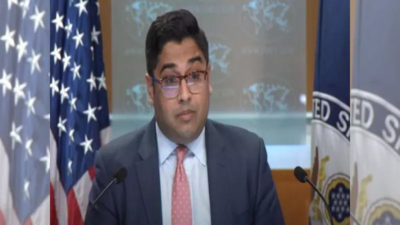
Iranian officials have vocally condemned Israel's actions, accusing the nation of aggression and violation of international norms. Tehran has declared its intent to respond firmly to what it perceives as provocations. However, Iran's statements also indicate a desire to prevent the conflict from spiraling into a broader war, which could have severe consequences for both nations and their allies.
Iran’s Supreme Leader Ayatollah Ali Khamenei articulated this stance in a recent address, emphasizing the need for a calculated response. "We must hold those responsible accountable, yet we must also be mindful of the broader implications of our actions," Khamenei stated. His words reflect a strategic approach aimed at maintaining regional stability while addressing grievances.
This strategy is underscored by Iran's recent military activities. The Iranian Revolutionary Guard Corps (IRGC) has conducted limited strikes and showcased military prowess through exercises, signaling its capability to retaliate. Yet, these actions have been carefully calibrated to avoid triggering a larger conflict. Analysts suggest that Iran's approach is designed to demonstrate strength and resolve without crossing thresholds that could lead to all-out war.
Israel, on the other hand, remains on high alert. Israeli officials have warned of severe repercussions for any attacks on their nation. Prime Minister Benjamin Netanyahu has reaffirmed Israel's right to defend itself, while also calling for international support to curb Iran's aggressive postures. "We will not stand idly by while our sovereignty is threatened," Netanyahu declared in a recent press conference.
The international community has responded with a mix of caution and concern. The United Nations has called for restraint from both sides, urging dialogue and diplomatic efforts to de-escalate the situation. Meanwhile, global powers such as the United States and European Union have been closely monitoring the developments, offering to mediate and prevent further escalation.
Experts note that the underlying issues between Iran and Israel are deep-rooted and complex. Historical animosities, religious differences, and geopolitical interests all play a role in the ongoing tensions. The nuclear ambitions of Iran and Israel's security concerns further complicate the dynamics, making the prospect of a lasting peace elusive.
Recent reports indicate that backchannel communications have been established to manage the crisis. Diplomatic sources suggest that these covert dialogues aim to outline red lines and prevent misunderstandings that could lead to unintended escalation. While the existence of such communications is a positive sign, their effectiveness remains uncertain given the volatile nature of the relationship.
Amidst these developments, regional players such as Saudi Arabia and Turkey have also voiced their positions. Saudi Arabia, a rival of Iran, has expressed support for Israel's right to defend itself while urging caution. Turkey, meanwhile, has called for a peaceful resolution and offered to mediate between the two nations.
The economic implications of the heightened tensions are also significant. Oil prices have shown volatility, reflecting market fears of potential disruptions in supply due to the conflict. The Middle East remains a critical hub for global energy, and any instability in the region can have far-reaching impacts on the global economy.
The situation between Iran and Israel remains precarious. While Iran seeks to retaliate against perceived provocations, its leadership is mindful of avoiding a wider conflict. The actions and reactions of both nations, along with the involvement of international actors, will be crucial in determining the future trajectory of this conflict. The world watches closely, hoping for a resolution that averts further violence and promotes stability in an already turbulent region.
Topics
Spotlight
